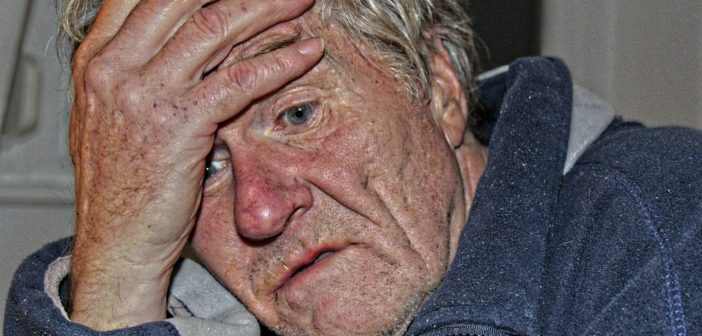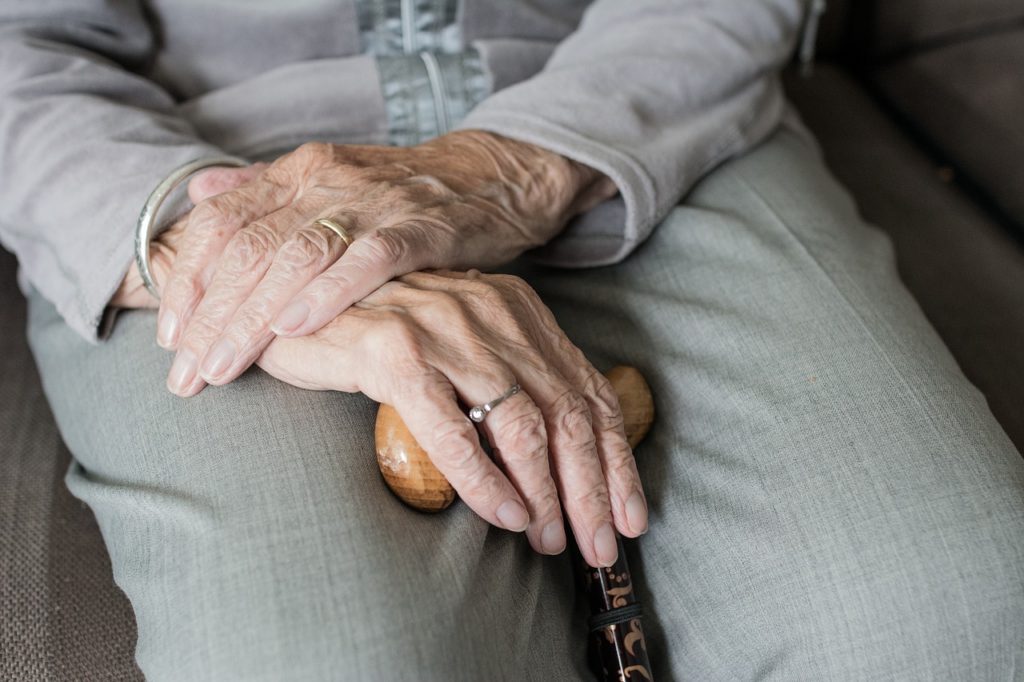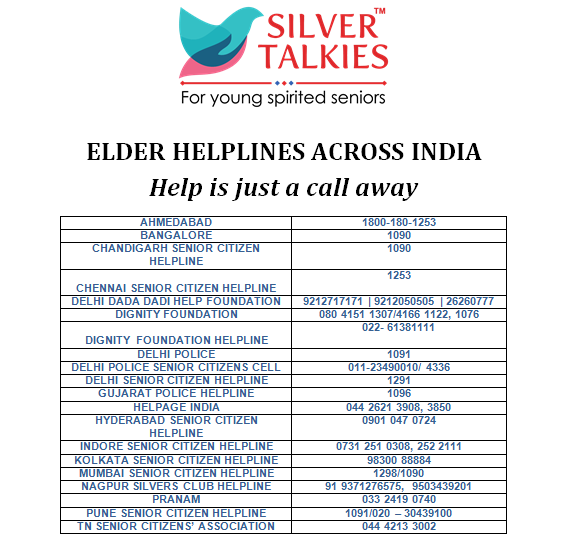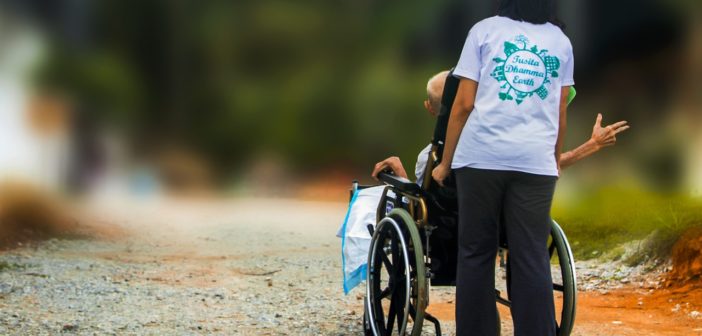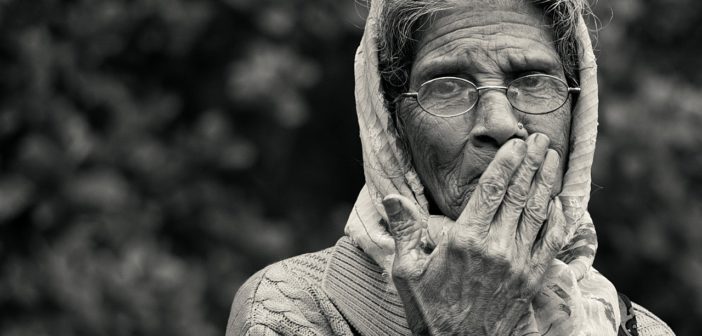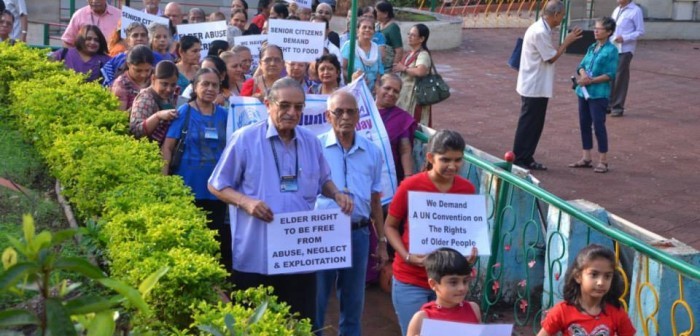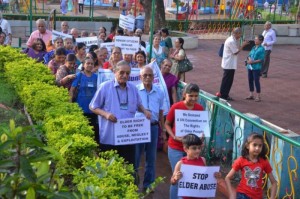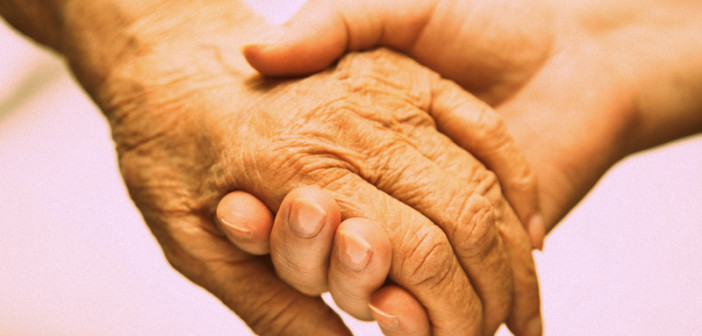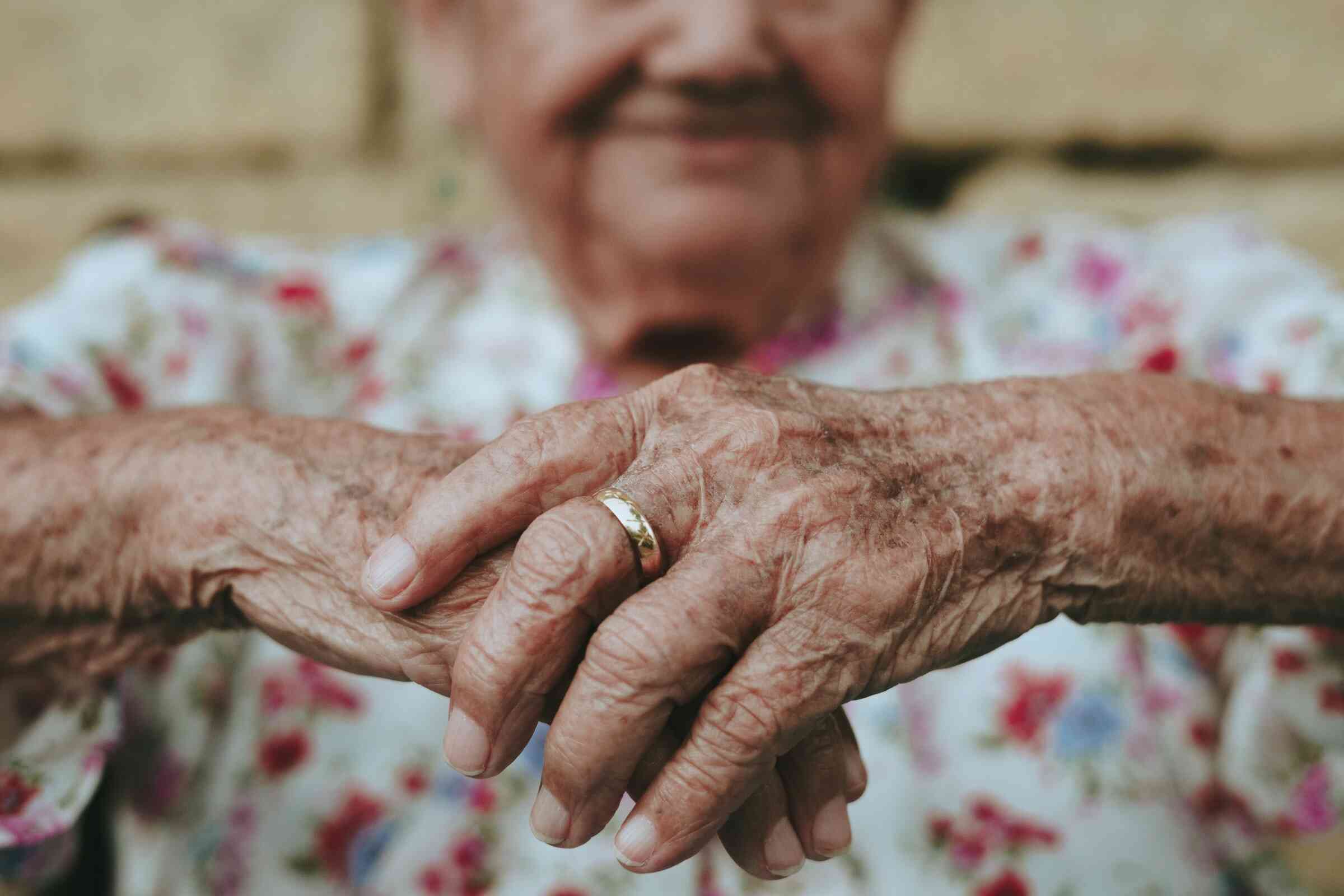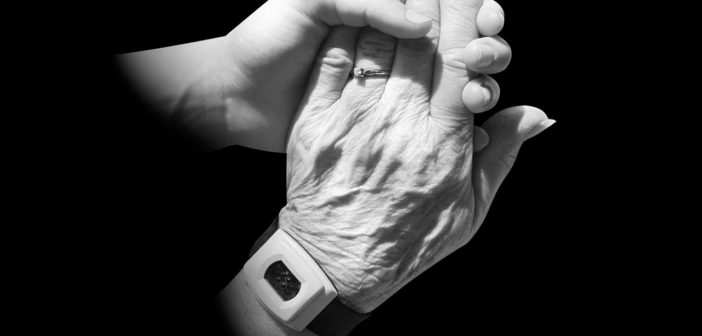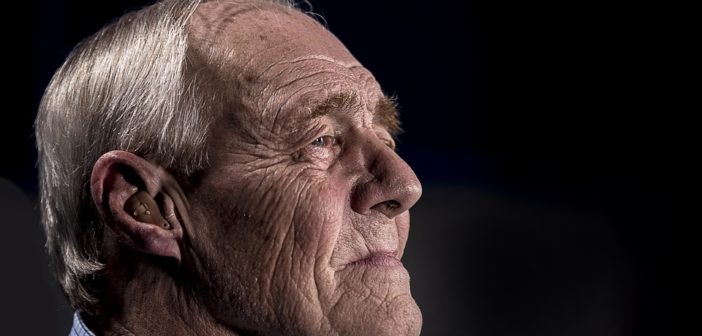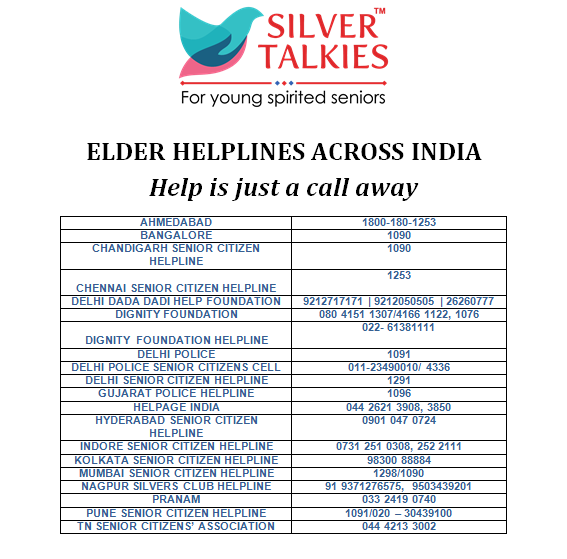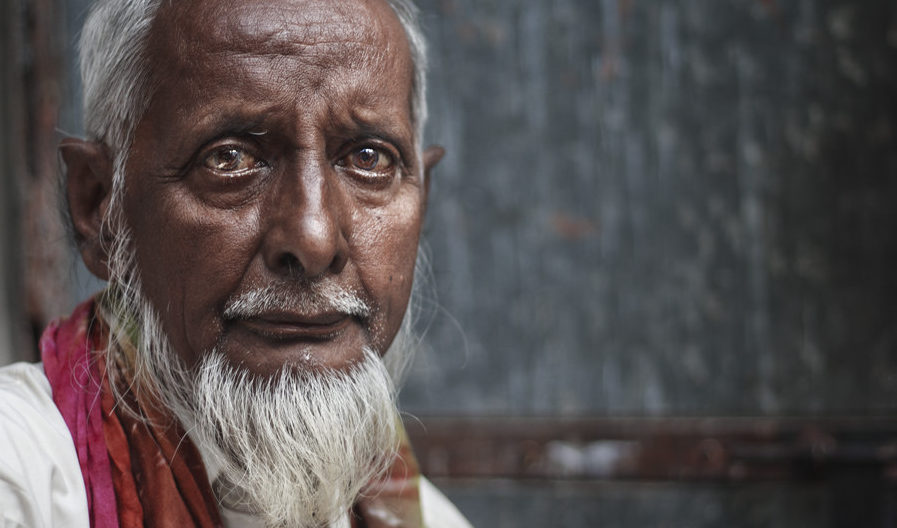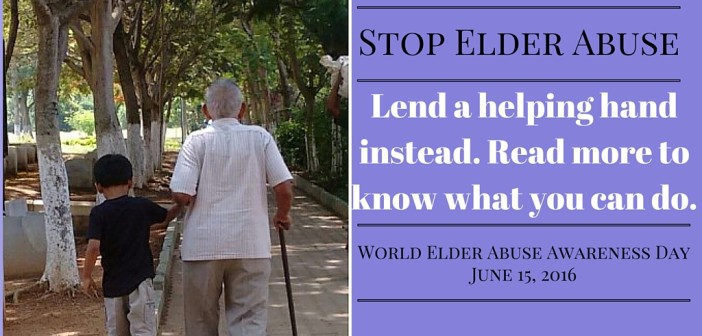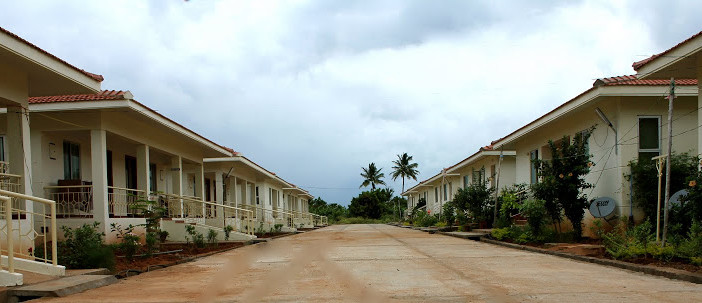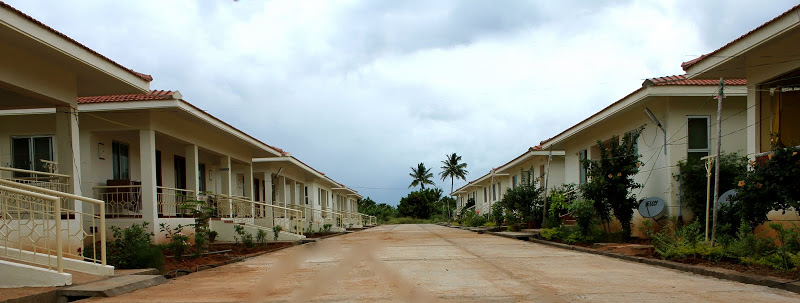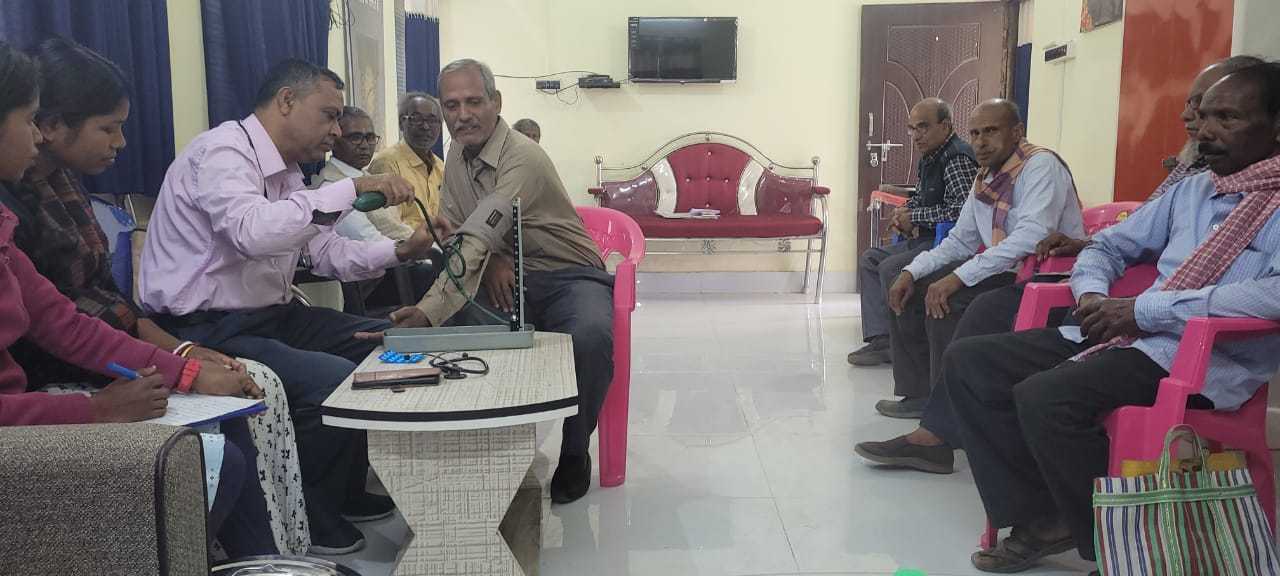Search Results
By: Sreemoyee Chatterjee
Elder Abuse has always been an unspoken but existing problem in India. With the outbreak of pandemic and the nation-wide lockdown to contain the pandemic, the situation has turned worst for some senior citizens. June 15 was World Elder Abuse Awareness Day and a recent study conducted on senior citizens during the lockdown by Agewell Foundation has some shocking facts.
Seventy-one per cent of seniors who participated in the study have reported that cases of elder abuse have increased during the lockdown period and after. The study found that 63.7 per cent elderly respondents were facing neglect in their life and 56.1 per cent were suffering from elder abuse in their families and society. 58 per cent of them blamed interpersonal relationships to be the main reason behind increasing elder abuse.
Highlights from the study
The study was conducted among 5,000 elderly respondents across the country. Here are some important highlights.
- Approximately every third elderly (35.1 per cent) claimed that the elderly face domestic violence (physical/verbal) in old age.
- Every fourth elderly, i.e. 25.6 per cent elderly admit that older persons are being exploited by their family members.
- 79 per cent respondents out of 2804 respondents facing elder abuse reportedly said that elderly face mistreatment in old age mostly due to financial reasons.
- 69 per cent of elderly abused respondents claimed that they face mistreatment due to emotional factors.
- In old age, 66 per cent of elderly abused respondents said that they face physical elder abuse in general.
- According to 25 per cent of elderly respondents, younger generations consider elderly family members as a burden on their family.
- Approximately 27 per cent elderly respondents said that the generation gap is the main reason behind the violation of the human rights of older persons.
- In all, 20 per cent of elderly respondents admit that their younger family members are unable to take care of their elderly family members.
- Approximately 21 per cent of elderly respondents said that issues related to properties are the main reason behind the violation of the human rights of older persons.
Different forms of abuse that the senior citizens face
The study has also found out the various forms in which the elderly population face abuse. These include:
• Disrespect and verbal abuse
• Silent treatment (not talking to them)
• Ignoring their daily needs
• Denying proper food
• Denying medical support
• Financial cheating
• Physical and emotional violence
• Force them to work
The guideline that seniors can follow to report elder abuse
It is important to provide older adults and those who care for them with the knowledge of what they are required to do in order to report abuse that they face. Just being aware of The Maintenance and Welfare of Parents and Senior Citizens Act, 2007 is not enough. Here are some steps that a senior citizen can follow to report abuse in any form.
Report it to the jurisdictional police station: The very first step is to make the jurisdictional police aware of the abuse. A senior facing abuse has to go to the police station and file a written complaint. Those who cannot write are required to verbally inform it to the station house officers who can pen it down for them and get their thumb impression on the piece of paper where the complaint has been written. Oral complaints are not adequate to take action as it can lead to confusion in the future.
File a First Investigation Report (FIR) in case of an admissible offence, assault or an injury: In case a senior is hurt and reports an admissible offence, an assault or an injury to the police station, the cops must register an FIR and investigate the complaint and find out whether the report is genuine and gauge its intensity.
Obtain a wound certificate from the government hospital: Once the cops find out the truth of what has happened after the investigation and the complaint appears to be genuine, the senior has to be taken to a government hospital for medical examination by the cops. Following the examination, the abused senior citizen will be provided with a wound certificate on the basis of which, the cops will file a charge-sheet against the accused. The case will thereby go on to the magistrate court or others and the legal discourse will be followed.
Seek help from the helplines: The seniors may also make use of the Elders Helpline available in their respective cities and seek help from the coordinators available there and file a petition to report an abuse. The counsellors available at the helpline first listen to the case and find out if they are genuine. Once found to be true, a written complaint is registered by the Helpline and a notice is sent to the perpetrator through the police. Following this, the Helpline tries and creates a platform of dialogue between the two parties and tries to resolve the dispute amicably. For property-related abuse, the legal experts available at the helpline advise them towards a settlement.
Here are some helpline numbers:
16 Jun, 2020 . 4 Mins Read
By: Sreemoyee Chatterjee
World Elder Abuse Day is on June 15 . Sadly, Bengaluru has seen an increase in the number of cases over the last one year.
While the World Elder Abuse Day on June 15, is committed to tackling elder abuse, it is a shocker that Bengaluru city has seen a considerable rise in harassment and abuse against older adults. In the last one year, harassment and elder abuse cases have increased from 174 in 2016-2017 to 264 in 2018-19, as per the data recorded by the Elders Helpline, Bengaluru. The data also revealed that while 60% of elders have stated that they face some kind of abuse, only 18% of them came forward to report an abuse.
Most of the cases of harassment and abuse against senior citizens are caused by a family member, usually son or daughter-in-law. A few cases of elder abuse have been registered against the neighbours, as per the statistics available with the Helpline. A greater number of senior citizens report about verbal and emotional abuse out of which a majority of disputes are property related.
Sandhya G, project-in-charge, Elders Helpline, Office of the Commissioner of Police, Bangalore, said: “It is unfortunate that most of the elder abuse cases that are registered with us are genuine and this is because today’s generation considers the previous generation as a burden. Once the parents grow old, they become financially dependent on their sons and daughters and cannot contribute to the income for the family. This results in the son neglecting and abusing them to get rid of the so-called additional pressure.”
“When a case is reported at our Helpline, we first listen to them and find out if its genuine or not. When found to be true, we take a written complaint and send a notice to the perpetrators through the cops. We then bring both the parties together and talk to them and try to settle the dispute amicably,” added Sandhya.
Blaming the inadequate implementation of Maintenance of Senior Citizens Act for the rise in the number of cases every month in the city, Shiv Kumar, senior advocate, said: “Under the maintenance act, a cop is expected to maintain vigil, particularly on the senior citizens. However, that is only on paper and rarely do we implement the law. Moreover, Karnataka police force is already unstaffed. A para force has to be created including the senior citizens in order to keep an eye on older adults and prevent their harassment.
14 Jun, 2019 . 2 Mins Read
By: Dr Naganath Narasimhan Prem
What could be some of the signs of elder abuse medical practitioners or people working with the elderly could look out for? Dr Naganath Narasimhan Prem, Chief Consultant, Department of Geriatric Medicine, Jaslok Hospital, Mumbai, weighs in.
Some of the key signs of mistreatment or abuse at any point is how the elder looks. It could be a sudden change in hygiene, shabby or torn clothes, lack of grooming at all, like no shaving, unclean clothes, among others.
Many times elders miss their doctor’s appointment and medications. If you ask them, they say I bought the medicine but now it’s finished and I couldn’t buy more. Maybe they weren’t allowed to buy it or given money to meet their medical needs.
Please remember that we can’t always say for sure that these are cases of elder abuse. It’s a grey area.
Injuries are another indicator. At an instance in Delhi, an elderly had come with a fracture. During the X-ray, different fractures in different stages of healing showed up. This doesn’t usually happen. The location of the fractures was suspicious too.
Sometimes you can see thumbprints. Another indicator that something may be wrong is frequent visits to the Emergency Room but not being forthcoming with the doctors about how exactly the injury occurred and leaving right after the treatment.
Decreased sleep, sudden loss of weight, which could be because of lack of food being given to the elder; anxiety and depression are also some red flags. Sometimes, an elder who is very conversational may go quiet very sudden. These could all be indicators.
Another factor to watch out for could be unexplained pain. In some cases, the pain could be a manifestation of what they are not able to explain.
You also need to be watchful of two histories – one from the elderly and one from the person caring for her or him. You can co-relate both.
Cases of mistreatment might be more in chronically bedridden patients or persons with Dementia. Abuse can be physical, psychological, financial, emotional and sexual.
Even asking an elderly at home what they do the whole day in a derogatory manner is abuse. Many times the elderly don’t come forth because of fear of retaliation if it’s a family member. We do not have an efficient system in place in our country where they can be rehabilitated in case there is a case of abuse. That is still a work in progress.
Healing After Abuse
Very often, if the mistreatment or abuse is in the hands of the child, then the elderly go into self-pity mode. They say I must have done something to deserve this.
They need to know that this hasn’t happened because of something they did. You can always get an ailment in old age but that does not mean you deserve abuse.
Elders also need to know their rights and know the law. You need to know your rights. The Maintenance and Welfare of Parents and Senior Citizens Act 2007 needs revision.
Helplines are great ideas as are support group for older adults, where they can broach the topic with their peer group. Awareness is extremely important for people to know and understand what is abuse.
There is a concept of restorative justice that focuses on decreasing fear in older adults. It also looks towards mending the relationship between the elderly and the abuser. Financial abuse can still be mended but the scars caused by physical, sexual and psychological abuse are hard to heal.
Meditation and Yoga may help as would being part of support groups where they are given a chance to express themselves. I strongly believe that ultimately, elders should get a chance to support themselves along with their peers. So that there is a core group or peer network where they can share if something happens.
16 Jun, 2019 . 3 Mins Read
By: Silver Talkies
Elder abuse is on the rise in India even as most senior citizens remain unaware of the law and redressal mechanisms. We took a look at findings from a recent survey and spoke to elder helpline counsellors to find a bleak picture.
Children harassing senior citizens for their deposits and property; Faking their signatures and taking a loan against the property; forcing them to register the property to their names; Children refusing to take elderly parents to the doctor for treatment; Not giving them their food or medication on time; Rude language and behaviour; threats to throw them out on the streets if they complain.
These are some of the instances of elder abuse that emerge after speaking to those working to prevent it. Given our cultural conditioning, it is expected that children, especially the son, would take care of parents in their old age. However, surveys and workshops by organisations working with elders like Helpage India, Nightingale?s Medical Trust, Bangalore show several instances of elder abuse where the immediate family is the main perpetrator. ?The Son along with the Daughter-in-law is increasingly turning abuser. Surprisingly there is an emerging trend of the Daughter also turning abuser,? says a 2014 study on Elder Abuse in India.
Elder abuse can be prevented or at least reported with a little awareness, which, sadly enough, is yet to come.
Senior citizens in the country can avoid ill-treatment or abuse in the hands of their family under the Maintenance and Welfare of Parents and Senior Citizens Act 2007. The Act aims to prevent elder abuse by making it a legal obligation for children to provide maintenance to their parents. Under the Act, parents and grandparents who are unable to maintain themselves from their own income can demand maintenance from their children. The Act also provides for ?Childless Senior Citizens,? who are unable to maintain themselves from their own income and can demand maintenance from their relatives. Maintenance in this case includes provision for food, clothing, residence, medical attendance and treatment.
Unfortunately, awareness of the Act is extremely low among senior citizens in India, according to survey done by Helpage India in 2014. One in five elders is unaware of any currently available redressal mechanisms. The awareness about the Maintenance Act is very low, with only 14 % of abuse victims being aware of the Act.
A Walkathon in Mumbai to spread awareness about Elder Abuse
Photograph courtesy: Silver Innings Foundation
WHAT IS ABUSE
The World Health Organization defines Elder Abuse as?a single, or repeated act, or lack of appropriate action, occurring within any relationship where there is an expectation of trust which causes harm or distress to an older person.? According to WHO, Elder abuse can take various forms such as physical, psychological or emotional, sexual and financial abuse. It can also be the result of intentional or unintentional neglect.
As the Helpage survey states, most elderly associate Elder Abuse with disrespect, verbal abuse and neglect. Verbal abuse ranked the highest in the survey, followed by neglect and disrespect. The 2014 survey also showed that Data shows that 50% of seniors experience abuse. Of the top metros, Delhi had the lowest percentage of abuse (22%) and Bangalore had the highest (75%) of elder abuse.
Most cities across India have helplines run by the police to help elders, often in association with eldercare NGOS. However, while many are aware of these Police Helplines, very few people approach them, fearing social stigma and isolation. According to the Helpage 2014 survey, fear of retaliation is a major factor in not reporting abuse, especially among seniors in Tier II cities like Nagpur.
Those who work with elder helplines are not surprised. ?Seniors safeguard their children even if ill-treated by them,? says Sandhya, a counsellor at the Nightingales Elder?s Helpline in Bangalore. Established in 2002, the helpline is a joint initiative of the Bangalore City Police and the Nightingales Medical Trust to address elder abuse. It?s located at the Police Commissioner?s Office premises on Infantry Road and also offers free legal advice and counselling through alternative dispute redressal methods to senior citizens every Thursday and Saturday.
Elder Abuse is a reality Photograph: Wikimedia Commons
Staying Aware
The simple fact that many elders safeguard their children often leads to lesser cases being reported or resolved. Many elders feel it is their fate that they are being harassed by their own children and would rather tolerate it painfully than bring them to book. According to data available with the NMT Elder?s Helpline (upto 2014), they had received 7500 complaints and had resolved 3500. On an average the helpline receives 30-35 written complaints a month from senior citizens. Of these more than 20 cases are related to harassment by the family, mostly either the son or daughter-in-law. The Helpline has seen an increase in complaints over the years and feels that awareness about mechanisms such as these could help seniors in distress. They have been conducting workshops and talks at apartment complexes and retired employee associations to spread awareness about the Elder?s Helpline.
Sandhya feels elders need to step out of social shackles and report abuse. ?We get 60-70 calls related to a day, out of which only one or two are converted into complaints ensuing in legal action. We cannot take action unless they give a written complaint and most senior citizens don?t want to give a written complaint against their own children.?
The other factor that leads to elders being easy targets for abuse is isolation. Many elders stay on their own with children away in other cities and are easy targets. One of the cases received by the Elders Helpline was of a couple who rented out a portion of their house to a tenant from their own community, thinking the cultural similarity would make it convenient. Unfortunately, the tenant not only refused to vacate the house but also verbally abused the elderly couple, who approached the helpline for intervention.
There are also cases where the elderly have been forced by their children to gift the property to their children. Under the Maintenance Act, the tribunals give the option to challenge the gift deed if the elder was forced or was not of sound mind but the process remains a laborious and difficult one, says a counsellor who often comes across such cases in her work with the Elders Helpline.
Most people seem to be aware that elder abuse exists, though few are willing to do anything about it. The Helpage Survey conducted this year, focused on the younger generation and their perception and awareness of elder abuse. 73% of Indian youth (25-45 years) admitted that elder abuse existed. Shockingly enough, most of them were unwilling to do anything about it. In Delhi, 92% youth were not willing to act if they came across an instance of abuse.
?What is surprising is that the Youth of today ARE aware of problem, they understand the reasons which precipitate abuse. They have clear solutions on how to avert abuse, but yet seem unwilling to Act. Take the case of Delhi where 85% of the youth admit Elder Abuse exists yet 92% say that they won?t Act to prevent it,? says Manjira Khurana, Country Head, Advocacy & Communications, HelpAge India.
Measures to Prevent Abuse
Awareness of the Maintenance and Welfare of Parents and Senior Citizens Act 2007 is paramount. Many people also think that living in large joint families can help prevent abuse.
Why are cases of abuse on the rise? According to those who work in the area, increased life span of the elderly and a change in traditional family values have led to cases of abuse, exploitation and desertion of older persons. Elders suffer physical, emotional, and financial abuse in silence as ill-treatment and abuse occurs mostly within the family.
Gerontologist Dr Indira Jai Prakash says that elder abuse is still a hidden problem and both victims and people who would like to help victims find it difficult to define it adequately. While legal sanctions are necessary, there is also need to sensitize people about this issue. It is also vital to have a bottoms up approach so that people who are the main target or are potential targets are made aware of how to identify, prevent and protect oneself from such situation. Community can play a very important role in both preventing the abuse as well as empowering the elders to fight back against such violation of their basic human rights.
The NMT Elder?s Helpline team visits groups of seniors every month. Recently, they conducted a workshop with a retired employee association and just at that first instance came away with 10 cases of elder abuse. Sadly, none of the senior citizens, all of them ex-employees of a reputed PSU (public sector undertaking) had any idea of the 2007 Act.
How does the Act help
Seniors can apply for maintenance to the Tribunal under Section 4 giving names, full details and addresses of the persons from whom they are demanding maintenance. If the senior citizen is incapable of making an application on their own, any other person or registered voluntary organization authorised by him/her can make the application. Upon receipt of the application, the Tribunal would issue notices to the children, conduct hearings, take evidence and order maintenance. Tribunal may also refer the case for reconciliation or pass interim orders for maintenance.
Helplines Across India (Run by Dignity Foundation, Helpage India, Nightingales Medical Trust and other NGOs in association with the city police)
Ahmedabad:1800-180-1253
Gujarat Police Help line 1096
Bangalore:1090 (Banglore City Police & Nightingale Medical Trust)
Dignity Foundation: 080 4151 1307/4166 1122, 1076
Chandigarh Senior Citizen Helpline 1090
Chennai Senior Citizen Helpline 1253
Helpage India:044 2621 3908, 3850
TN Senior Citizens? Association: 044 4213 3002,
Delhi Dada Dadi Help Foundation: 9212717171 | 9212050505 | 26260777
Delhi Senior Citizen Helpline : 1291
Delhi Police: 1091
Delhi Police Senior Citizens Cell: 011-23490010/ 4336
Hyderabad Senior Citizen Helpline: 0901 047 0724
Indore Senior Citizen Helpline 0731 251 0308, 252 2111
Kolkata Senior Citizen Helpline 98300 88884
Pranam: 033 2419 0740
Mumbai Senior Citizen Helpline 1298/1090
Dignity Foundation Helpline: 022- 61381111
Nagpur Silvers club helpline: 91 9371276575, 9503439201
Pune Senior Citizen Helpline: 1091/020 ? 30439100
19 Jun, 2015 . 5 Mins Read
By: Silver Talkies
There are several senior citizens who face abuse from their loved ones in some form or the other. On June 15, World Elder Abuse Awareness Day, Silver Talkies brings you the harsh truth about elder abuse and the help senior citizens can seek.
“I would rather not talk about it,” says the reluctant lady as her relative hands over the phone to her. It’s futile asking her to speak, even anonymously. According to the relative who is taking care of her now, the lady in question, a Delhi resident aged 72, was asked by her son and daughter-in-law to leave the house after an argument and agressive behaviour from them regarding property. She took shelter with the relative believing the son would ask her to return after things cooled down. “It’s been more than seven months and we haven’t heard anything positive, even though the property is in her name,” the relative adds. The elderly woman has refused to go to court, believing that family troubles are best solved by family itself and taking refuge in God.
It may sound improbable but Elder Abuse is a grim reality. A recent report released by HelpAge India says that nearly 31 percent of the elderly in India faced abuse in some form. The report is based on a sample survey of elderly across 20 major cities. Fifty six percent of the elderly interviewed felt that it was their son who abused them, while 23 percent felt it was the daughter-in-law. A similar study by HelpAge in 2011 on abuse as well as crime against elders in primarily poor households in nine cities, found 63.4 per cent elders naming the daughter in law, followed by the son (44%) emerged as the main abusers.
HelpAge India’s 2010 study focused on elders from the educated middle class in 8 Indian cities, where 53.6 % of the elderly stated, they were abused by their own son followed by a close second by their daughter-in-law (43.3%). The facts may be surprising but they aren’t new. Elder Abuse occurs in several families but often goes unreported or is swept under the carper for fear of going against one’s children.
What constitutes Elder Abuse? The definition adopted by the International Network for the Prevention of Elder Abuse states the following: a single, or repeated act, or lack of appropriate action, occurring within any relationship where there is an expectation of trust, which causes harm or distress to an older person.
The abuse can be physical, emotional or financial.
In Bangalore, a 65 year old senior citizen was physically abused by his daughter for not bringing in any income. “I worked in Kuwait all my life earning money for my son and daughter and saw them settled,” he says amidst sobs, adding that both his son and daughter were good to him while he earned money. Angered by the father not getting an income and fearing he would become a burden on her, this senior citizen’s daughter hit him hard enough to break his glasses and hearing aid.
“My daughter studied in a reputed Bangalore school, works for a well known IT company and has a good income, yet she harassed me by not offering me food at times and not letting my brothers or sisters visit me at home,” says the senior citizen who now does the odd typing work to maintain himself. He filed a complaint against his daughter at the local police station and when they failed to take action, contacted the Senior Citizen’s Helpline run by Nightingale Medical Trust in Bangalore. The senior citizen’s daughter and wife were issued a notice, though they have so far failed to make an appearance before the Helpline’s advocate.
Why are cases of abuse on the rise? According to those who work in the area, increased life span of the elderly and a change in traditional family values have led to cases of abuse, exploitation and desertion of older persons. Elders suffer physical, emotional, and financial abuse in silence as ill-treatment and abuse occurs mostly within the family. What makes it worse is that In India, effective support systems to address this issue are almost non existent.
Gerontologist Dr Indira Jai Prakash says that elder abuse is still a hidden problem and both victims and people who would like to help victims find it difficult to define it adequately. While legal sanctions are necessary, there is also need to sensitize people about this issue. It is also vital to have a bottoms up approach so that people who are the main target or are potential targets are made aware of how to identify, prevent and protect oneself from such situation. Community can play a very important role in both preventing the abuse as well as empowering the elders to fight back against such violation of their basic human rights.
To support this cause, Nightingales Regional Resource & Training Centre, an initiative of Ministry of Social Justice and Empowerment, Govt of India and a project of Nightingales Medical Trust in collaboration with Federation of Senior Citizen Forums of Karnataka is organizing a Workshop on the Role of Community in Sensitizing and Evolving Methods of Prevention of Elder Abuse in Bangalore on June 15.
Under this program, senior citizens would be involved in defining what they consider elder abuse, and also outline how communities can help in empowering elders to protect themselves. Instead of ‘ telling’ them, they will be’asked’. A practical manual will be developed from the ideas and suggestions gathered.
Silvertalkies wishes this project every success. Watch this space for details soon.
About the Elder’s Helpline
In Bangalore, the Elders Helpline is a joint venture between the Bangalore City Police and Nightingales Medical Trust and has succesfully resolved over 1100 cases.t Since its inception in 2002, it has received over 45,047 calls, averaging at around 40 a day. The helpline staff include social workers, counselors, volunteers, legal professionals and police personnel. The services offered by the Elders Helpline include helping elders in distress; facilitating police intervention in serious cases; information on personal security, medical issues and other daily needs; tracing missing elders; creating awareness about elders’ rights, children’s responsibilities, responsibility of the public in minimising crime and violence, dispute resolution and free legal advice among others. Based in Shivajinagar, Bangalore, you can contact the Elders Helpline on 1090 or 080-22943226 (8 am to 7 pm), Monday to Sunday.
Helplines in other cities
In several other cities, Cordaid – Support Services for the Urban Elderly and HelpAge India manage a helpline. Here are the numbers:
Bhopal: 1800-233-1253
Bhuvaneshwar: 1800-345-1253
Chennai: 1253
Delhi: 1800-180-1253
Kolkata: 1800-345-1253
Mumbai: 1800-180-1253
The Dignity Foundation too runs a helpline to help elders who are being harassed or abused. Do check the following link for numbers in different cities. http://www.dignityfoundation.com/community-care/dignity-helpline.html
(With inputs from Nightingale Medical Trust)
16 Jun, 2012 . 4 Mins Read
By: Reshmi Chakraborty
In 2021, 43.1 per cent of elders said that elder abuse is prevalent in society. Here’s a deep look at what is elder abuse and how could it be prevented.
There is an interesting perspective in Helpage India's 2021 report on elder abuse that's focused on the pandemic. 61.4 per cent of older respondents said that the ‘work from home/study from home’ routine of their family members affected their day-to-day routine. It was a sharp contrast with the perspective of their family member/caregiver. 71.6 per cent of them said it did not affect the elder’s day-to-day routine.
Dr NN Prem, Chief Consultant Geriatric Medicine, Department of Geriatric Medicine, Jaslok Hospital, Mumbai, talks of this difference in perspective when talking about the increasing incidents of elder abuse. We need to understand abuse from the perspective of both the caregiver and the elder, he says.
"It's the complexity of relationships. The younger generation needs to look at the elders' viewpoint. Sometimes the issues come from both sides. Both generations need to understand that there has to be a middle part as sticking to your ground means that the tough situation drags on, there is no open communication and it may lead to an event of abuse."
What is elder abuse?
Elder abuse is a term referring to any intentional or negligent act, whether by the caregiver (family or paid attendant) or any other person that may cause harm to an older adult. It is not limited to any social strata or class and goes beyond physical abuse. Sometimes both the older adult and the caregiver may not be aware that the behaviour is abusive, a key reason why awareness about elder abuse is important.
Dr Prem lists out the various types of elder abuse that are common:
Self Neglect: Self-neglect is a state where the older adult neglects every aspect of care. They start living in conditions that can be harmful to their health. It can be a sign of depression, grief or even dementia. Neglecting personal hygiene, failing to seek medical help, avoiding self-harm, and inability to manage activities of daily living, all fall under this. But when does self-neglect get classified as elder abuse? When it is a failure to fulfil a caretaking obligation by the caregiver to ensure the older adult’s overall wellbeing.
Physical abuse: This includes physical assault, restraining or confining the older adult, roughly handling the vulnerable older adult, feeding them forcibly or withholding food from them. "Inappropriate use of drugs is also an abuse," Dr Prem notes. "If they are restless at night, giving them an overdose of sedatives without asking the doctor, for instance.” He cautions that physical abuse can be easily morphed (disguised) and signs of abuse are often passed off as bruises from a fall or self-harm by the person behind the abuse.
Emotional abuse: Terrorizing an older adult with threats of harm, abandonment, and verbal abuse by yelling, humiliating and ridiculing, all these are signs of abuse. "It is very common to ridicule the older adult as having been a failure and though this often comes out of frustration, it can have a huge emotional impact," Dr Prem adds. "It could also be ignoring the elderly person completely or isolating them from their friends or activities they love." Abuse reports show us that emotional abuse is often the main form of abuse.
Sexual abuse: Apart from sexual assault or inappropriate touch, sexual abuse can also be about exploiting a vulnerable older adult in other physical ways and disrespecting their dignity.
"For example, undressing a person who has dementia without any dignity. Whether the person is bedridden or not, there is still a person inside and everyone needs to respect that. There are times when older adults have been left undressed against their wish or have been changed openly without a cover. All these constitute significant elder abuse," says Dr Prem.
Financial abuse: Exploiting a vulnerable older adult financially is very common. These may include misuse of the older adult's checks, credit cards or cash. Forging the older adult's signature, identity theft, preventing them from accessing their own money or assets. Undue pressure on the older adult to secure loans, forcefully make a will or financial transaction, and any similar coercion related to money, all could be forms of elder abuse.
Prevention & Safeguarding Older Adults
Prevention & Safeguarding Older Adults
Older adults need to secure themselves first, believes Dr Prem. “Make sure you have a home and at no point just name everything to the children. If you make a Will, try to equally distribute whatever you want and make sure you secure yourself and your spouse first.”
Caregiver stress often contributes to elder abuse. “As geriatricians, we need to understand what amount of stress the caregiver is under. We always talk about prevention and we could do that by addressing caregiver stress at an earlier point.
Here are a few pointers toward caregiver stress that could be looked at to prevent elder abuse at a later stage.
The history between the older adult and the caregiver matters a lot. For instance, in some cases the older adult could have been an abusive parent or spouse to the caregiver and the frustration and anger of that history could turn to abuse.
“It’s important to protect the elder and it is also important to create awareness about caregiver stress and try to prevent it as that often leads to abuse,” Dr Prem notes.
How to notice elder abuse and what to do about it?
Keep checking on the elder, advises Dr Prem, whether you are part of the elder’s home, a friend, relative or a neighbour. Call the elder or visit often if possible so that you become a trusted confidante. Offer to stay with the older adult if they are comfortable so that their primary caregiver may get a break. Watch out for the elder’s state of hygiene, clothes and communication. For instance:
Do they seem happy to live in their home or the care home they are residing in?
Would they like to live elsewhere?
Does their condition seem to deteriorate further each time you see them?
Very few older adults would openly say they are being abused, fearing retribution or out of shame, love or guilt but constant communication could help. If you think the situation demands an intervention, you could speak to a trusted source. Also, look up our guide here on reporting abuse.
Dr Prem adds a word of caution to this:
If you have established that there is elder abuse, do not try to confront the abuser yourself without gathering support. Find strength in numbers as doing it impulsively might put the older adult in danger. For instance, if you suspect a family caregiver of abuse, other family members need to be aware of the situation and the older adult needs to be convinced that she/he would need alternate care.
If you suspect self-neglect, keep checking in with the older adult and make sure they are always connected to their medical services. If you're an older adult reading this and unhappy with the care you're receiving, try to speak up. Talk to someone you trust.
For Caregivers
Elder Abuse reports often point out that it begins at home. According to 2021’s report, the main abusers were sons and daughters-in-law.
It can be exhausting and challenging to care for an older adult. It is especially draining if it is without much help or support or requires you to put your work or activities on the backburner. Since such situations can often lead to abuse, Dr Prem suggests preventive tips if you're a caregiver.
Take immediate steps to relieve your stress and burnout, whether it's meditation, whether it's doing deep breathing exercises, or Yoga, among these.
Please learn techniques to get your anger under control.
* Make sure that you get enough rest because the lesser you sleep the more you're susceptible to irritation and anger.
* Have a healthy diet, get regular exercise, and take care of your own medical needs.
Find a support group for caregivers for the elderly as sharing your concerns and experiences may be might lead to solutions, which you thought were not there.
If you're not able to tolerate whatever is happening, you need to seek mental health support as by doing that you will take a step towards providing better care for the older adult.
Elder abuse is a sad reality in our society. Yet, as we create awareness and empower elders, we could try to address it from the root and take a balanced view on what causes it.
Silver Talkies has written extensively on Elder Abuse through the years. Click here to read.
Images are used for representation purposes only.
14 Jun, 2022 . 9 Mins Read
By: Christopher Antony
October 1 is the International Day of Older Persons. As we celebrate age and living it without any limitations, we must also be aware of harsh realities like abuse and neglect. Here is one such story. Watch this space as we also bring you stories of courage, care, and resilience throughout the month.
82 percent of India’s older people are often at the receiving end of physical and verbal abuse and, worse still, neglect, often from their own family, said a HelpAge India report this year. Neglect can often be much overlooked, yet is most common. Our reader Christopher Antony, 75, shares an instance of neglect watched from close quarters as a story.
There was this young girl in school uniform hand-holding a small boy, around ten years younger than her, to a school for girls which also took in boys then, in what was called Baby Class. During recess, she would take him to the urinal, and she would help him wash up and take care of him like a parent. Next year he moved to a school for boys. He grew up loving and admiring her for keeping the house spick and span and ensuring that all at home go for the Sunday Mass in their Sunday best, a term that has lost its meaning. He is not a deeply religious or a pious person but hates to see people in Church these times dressed very casually in jeans and tees as if they have come to a place for fun and not for prayers.
She was married off to a decent man in a respectable family in a far-off and then very under-developed, sleepy village. A convent-educated girl in a traditional zamindari village was sort of a mismatch. But she decked up her married home there and was probably the best-kept house in that village in those early days. Sadly, as she grew older, she had to painfully see that the residents of that home were the least interested in taking a further interest in the house's upkeep.
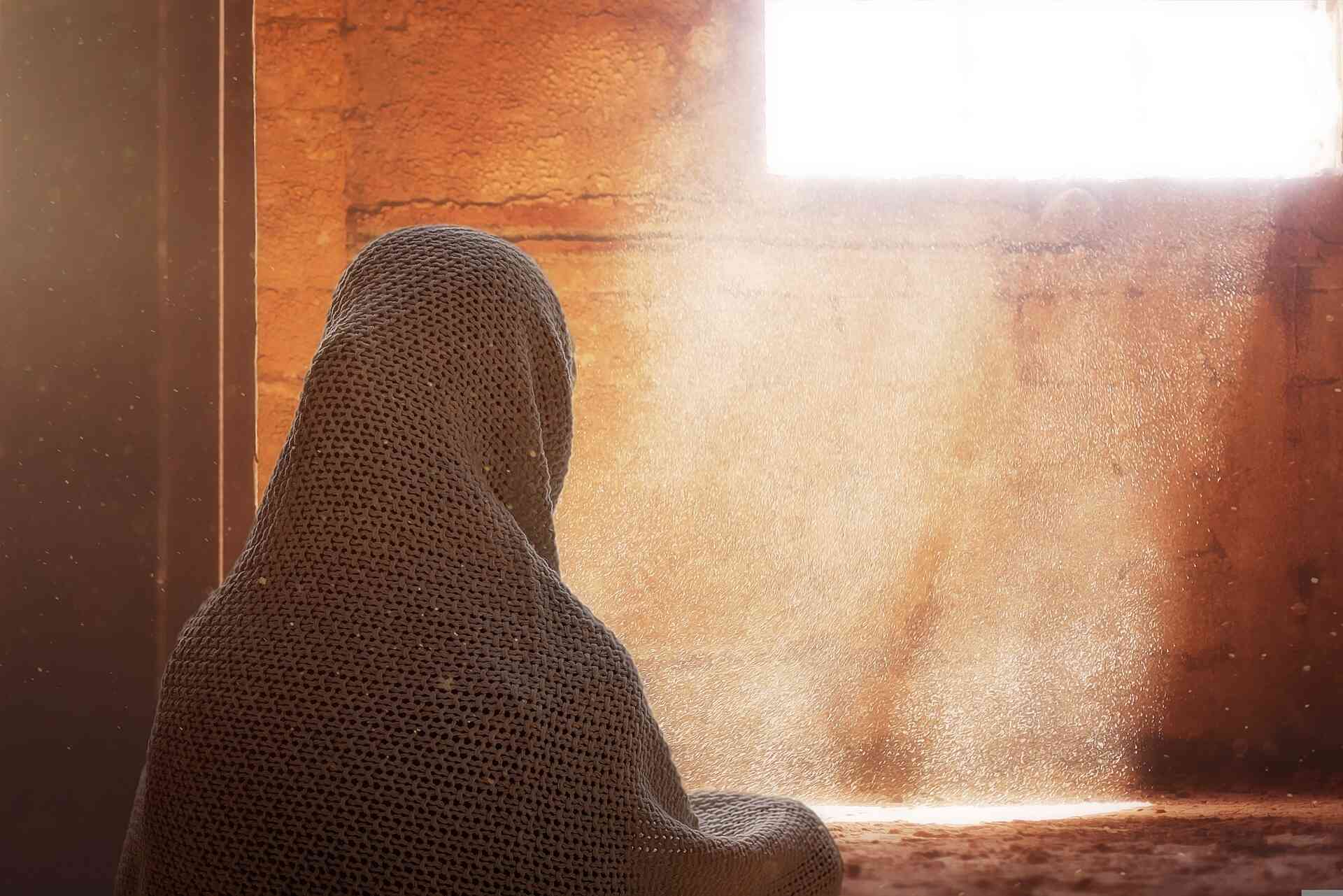
To add to her woes, she had a fall sapping her of all her energy gradually and making her almost bedridden. This took a toll on her mental health as well as her consciousness. It started deteriorating, but what was there in the inner recesses of her mind was erupting when she got a chance to talk. She mentioned how she lost not only her fluency in conversing in English but was not even confident to speak in English. She got stuck in a village where she didn't get the opportunity to interact with many English-speaking people.
When he visited her after more than a couple of years, a delay due to the Covid pandemic, she was seen peering through the window in a closed room with no others in the house. That was a painful sight. She didn't recognize him but seemed to pretend that she remembered who she was when he told her. She was smiling in the way she did in her jovial days but didn't talk in the present tense. Mother had just gone out and would be back soon, she said. He acknowledged this with deep sadness inside. She was talking about her long-dead mother! Their mother. Yes, they are siblings. He was meeting his sister after years, the same one who would hold his hand and take him to school in that image he had from their childhood years. The same one who would take care of him as a parent.
And now? Who was caring for her, he thought. Forget the dead, even some of her own living didn't seem to care. Had there been deliberate abuse of her like many elders suffer in India? Neglect is also abuse, he thought. He returned home, crestfallen with memories from childhood and beyond flooding his mind.
Does this story remind you of any elder you may know?
If you think an elder may need to speak to someone or read more to understand what abuse and neglect are, read here:
Images courtesy: Pixabay
29 Sep, 2022 . 4 Mins Read
By: Sreemoyee Chatterjee
June 15 is World Elder Abuse Awareness Day. Here’s a guide on how to report elder abuse.
World Elder Abuse Awareness Day is on June 15 and elder abuse cases are on a rise, as per data recorded by the Elders Helpline, Bengaluru. It is important to provide older adults and those who care for them with the knowledge of what they are required to do in order to report abuse that they face. Just being aware of The Maintenance and Welfare of Parents and Senior Citizens Act, 2007 is not enough. Here’s an easy manual from Silver Talkies that older adults can follow to report any kind of abuse they go through. Senior Advocate, Shiv Kumar tells us the steps senior citizens facing elder abuse should abide by.
Report it to the jurisdictional police station: The very first step is to make the jurisdictional police aware of the abuse. A senior facing abuse has to go to the police station and file a written complaint. Those who cannot write are required to verbally inform it to the station house officers who can pen it down for them and get their thumb impression on the piece of paper where the complaint has been written. Oral complaints are not adequate to take action as it can lead to confusion in the future.
File a First Investigation Report (FIR) in case of an admissible offence, assault or an injury: In case a senior is hurt and reports an admissible offence, an assault or an injury to the police station, the cops must register an FIR and investigate the complaint and find out whether the report is genuine and gauge its intensity.
Obtain a wound certificate from the government hospital: Once the cops find out the truth of what has happened after the investigation and the complaint appears to be genuine, the senior has to be taken to a government hospital for medical examination by the cops. Following the examination, the abused senior citizen will be provided with a wound certificate on the basis of which, the cops will file a charge-sheet against the accused. The case will thereby go on to the magistrate court or others and the legal discourse will be followed.
Seek help from the helplines: The seniors may also make use of the Elders Helpline available in their respective cities and seek help from the coordinators available there and file a petition to report an abuse. The counsellors available at the helpline first listen to the case and find out if they are genuine. Once found to be true, a written complaint is registered by the Helpline and a notice is sent to the perpetrator through the police. Following this, the Helpline tries and creates a platform of dialogue between the two parties and tries to resolve the dispute amicably. For property-related abuse, the legal experts available at the helpline advise them towards a settlement.
Elder Helplines across India
According to Senior Advocate and Silver Talkies panel expert Shiv Kumar, in actual practice, once a senior files a report of verbal or emotional abuse against someone within the family, the cops do not register FIR in the first place and do an informal enquiry. They call up the person against whom the report has been filed and try to make a peaceful settlement. The legal discourse is followed when the police find it to be a prima facie case.
14 Jun, 2019 . 2 Mins Read
By: Silver Talkies
Senior advocate Shiv Kumar tells us how the Maintenance and Welfare of Parents and Senior Citizens Act 2007 can help us prevent elder abuse and safeguard elder’s rights.
Despite age old traditions that equate parents with god and revere mythological figures like Shravan Kumar who carried his aged parents in a basket on his shoulders for a pilgrimage, elder abuse remains a sad reality in India today. Worse still, cases of abuse are seldom reported. Thirty-one percent of the elderly themselves consider abuse a family matter and do not report family members who abuse them. Twenty-three percent do not report elder abuse for “fear of retaliation,” according to a Helpage India Elder Abuse survey conducted in 2014.
However, did you know there is a law to safeguard the rights of elders in India? The Maintenance and Welfare of Parents and Senior Citizens Act 2007 was put in place to prevent elder abuse by making it a legal obligation for children to provide maintenance to their parents. Here’s a short interview with senior advocate Shiv Kumar, who has been working in the area of elder empowerment, on how this law can help prevent elder abuse.
Shiv Kumar is a Senior Advocate with a 40 year old practice at the Karnataka High Court. He has been actively involved with the Elders Help Line run jointly by Nightingales Trust and Bangalore Police since its inception. He has established the Legal and Counselling Centre at the Helpline and a dispute resolution process in the form of mediation, which attempts conflict resolution through the alternative process of Mediation without recourse to courts. He is the author of a draft legislation exclusively for elders that was used as a base for the Maintenance Act. He is keen on educating and empowering senior citizens about their rights under the law.
1. How would you define elder abuse to a layperson?
Elder abuse has not been specifically defined in any statute. However, conceptually elder abuse would refer to any act or deed or conduct that tends to adversely impact or lower the dignity of life of an elder and/or subjects an elder to pain, suffering (both emotional or physical), deprivation, etc., and compels the elder to adhere to a code of conduct or behavior, which deprives the elder of the right to make a free and independent choice. In essence, therefore, elder abuse represents a willful denial of an elder’s right to lead a life of dignity without being relegated to an animal existence and inclusion in mainstream society. Such rights have received universal recognition, including in the covenant of UN, the Constitution of India and several judicial pronouncements of the Supreme Court of India. Resultantly, whether or not “abuse” is specifically defined, every act which tends to demean the name or life of an elder or results in deprivation of his/her property or tends to create fear or apprehension in the mind of an elder could be classified as abuse. Disrespect, abandonment, deprivation of essentials of life, threat to life and property are only manifestations of abuse.
2. While there is more awareness about elder abuse now, we are still coming across cases on a regular basis of elders being beaten up or neglected. What are your thoughts on this?
Sadly, there has been a significant increase in cases and instances of elder abuse. However, it is also true that awareness of the means of redressal under statute and of those offered by several NGOs has increased. Physical abuse is relatively lower in occurrence than emotional, psychological or financial abuse, but neglect/abandonment of elders remains a major form of abuse. Notwithstanding greater awareness of rights and relief mechanisms (both statutory and otherwise) the reluctance of elders to seek help or enforce rights remains. Fundamentally, this reluctance stems from a fear/apprehension of a higher degree of abuse after help is sought by an elder. This fear is often justified and more pronounced in cases where the perpetrator and victim reside in the same house and, by circumstances, are compelled to continue to live/reside together, even after seeking redress.
3. How can awareness about the Maintenance and Welfare of Parents and Senior Citizens (MWPS) Act, 2007, help curb cases of elder abuse?
Proactive measures like MWPS afford statutory recognition to some of the basic human rights like food, clothing, shelter, medical care, recreation etc. Codification of such rights and providing a mechanism for enforcement has resulted in a sense of entitlement amongst elders. Rights conferred by law and specifically under the MWPS Act have encouraged elders to seek relief in courts/tribunals or assistance of helplines to protect their statutory rights. The trend to seek relief from abuse and injustice has been encouraging. However, the difficulty in enforcing rights particularly against abuse is that most cases of abuse occur within the confines of a home and, therefore, are difficult to establish by cogent/acceptable evidence in any judicial forum. Moreover, rarely are such instances willingly brought into public domain. However, for an elder who has decided to seek legal remedies on account of intense or severe abuse, an increased awareness of remedial measures provided under the Act has acted as an incentive and provided a sense of reassurance.
4. If you were to highlight 5 key points of the Maintenance act what would those be?
Five key points of the MWPS Act would be:
a) Establishment of Maintenance Tribunals to ensure payment of maintenance for sustenance of elders by children, including daughters, and providing for imprisonment in case of default in payment.
b) Obligating the State to notify schemes to protect the life and property of senior citizens.
c) Casting an obligation on the State to notify schemes for enhancement of the quality of life of senior citizens, including proactive measures for recreation, health care, provision of food and other welfare measures and creating easy access to legal redress.
d) Providing for cancellation of instruments of transfer of immovable property in cases where children fail to look after or provide for their parents.
e) Establishment of old age homes and prescribing minimum standards for such homes.
A draft bill with substantial amendments to the act is pending consideration. Click here to read the amendments.
5. What are most instances of elderly abuse about? Physical violence? Emotional torture? Financial negligence?
In most cases elder abuse comprises mental abuse, neglect, deprivation and financial exploitation. Physical violence is comparatively less for the obvious reason that any physical harm or injury to a senior citizen would not only constitute a criminal offence under the Indian Penal Code but more important would be capable of being proved through medical examination.
6. If an abused senior decides to file a complaint against her/his abuser, what are the steps she/he needs to take and follow?
In cases of abuse to elders, two remedies are available:
a) To file a complaint of physical abuse or threat to life at the jurisdictional police station and demand that an FIR be registered, in which event the regular course of law would be set in motion.
b) To approach helplines, if they are available, and seek intervention.
14 Jun, 2018 . 6 Mins Read
By: Silver Talkies
HelpAge India’s latest report released today reveals a disturbing rise in elderly abuse, with sons identified as the topmost perpetrators; daughters-in-law follow closely behind.
“My sons want to sell the house to start their own business, they often ask me when will you die.” – 63-year-old Inderjeet Singh
“Behaviour of my son has been changed after registering the property in his name, he now harasses me frequently.” – 75-year-old Abdul
“It’s been a long time and I have not heard from my son, is he alive?”
76-year-old Dineshbhai
These and more were some of the disturbing voices heard by HelpAge India interviewers when they set out to survey 5014 elders above the age of 60 across Tier 1 and Tier 2 cities in the country this year. HelpAge India, an NGO that supports the elderly, has been conducting annual surveys on different themes related to the elderly since 2013.
The 23 city report, titled ‘Elder Abuse in India 2018 – Changing Cultural Ethos & Impact of Technology’, was aimed at understanding the extent, depth, form, frequency and reasons behind elder abuse.
Nearly one-fourth (25%) elders experienced abuse personally. The main abusers were sons (52%) and daughters-in-law (34%). As many as 26% also faced abuse by their daughters, 15% by their spouses or partners, 6% by grandchildren and 2% by sons-in-law.
More than 50% of the abusers were skilled workers and working professionals. Their mean age was 42 years.
An overwhelming majority, 85% of the elders surveyed, said they lived with their families.
“Each year we try to get a better understanding of the existence of this heinous crime against our elderly and create awareness about the issue. Unfortunately, elder abuse starts at home and from whom they trust the most. This year the son has turned out to be the foremost perpetrator of elder abuse, followed by the daughter-in-law who normally is perceived as the primary abuser as per past surveys. We run a toll-free Elder Helpline No. 1-800-180-1253 for such elders in need, so they can reach out to us for help, often young good samaritans call us wanting help an elder they see in need of help and protection”, said Mathew Cherian, CEO, HelpAge India.
The most common form of abuse elders experienced was Disrespect (56%), Verbal Abuse (49%) and Neglect (33%). Economic Exploitation was 22% and Beating & Slapping was a disturbing 12%.
The top 5 cities that had a high percentage of elder abuse were Mangalore (47%), Ahmedabad (46%), Bhopal (39%), Amritsar (35%) and Delhi (33%).
Unfortunately, 82% of those abused, did not report the matter. The key reasons for not reporting were to “maintain confidentiality (52%) of family matter” or “did not know how to deal with problem (34%)” suggesting lack of awareness.
73% elders felt that ‘their adult children are too busy on the phone even when at home with them.’ 78% elders agreed that social media had decreased their families’ personal time spent with them.
“We also looked into the impact of technology vis a vis elder abuse. While technology in itself is good and progressive, it also has adverse impacts in the lives of our elderly. The findings were an eye-opener, with nearly 65% elderly stating that extreme attention given to phones/ computers is disrespectful,” said Cherian.
HelpAge India, along with 300 senior citizens from across the national capital of Delhi, will hold a candlelight march on June 15 at Parliament Street to raise awareness about elderly abuse.
15 Jun, 2018 . 3 Mins Read
By: Reshmi Chakraborty
Today, June 15, is World Elder Abuse Awareness Day. Read on to find it what constitutes Elder Abuse and what you could do to prevent it.
Elder Abuse is a term that seems incongruous in a country like India, given our tradition of revering the older generation. Yet, with every passing year, as we hurtle towards becoming a country of 323 million elderly by 2050, according to a UNFPA and Helpage International report, there are more cases coming up that seem to do the opposite.
In 2014, half of India’s elderly (50%) surveyed in a study by Helpage India, reported experiencing abuse. 77% lived with their families. A recent study of the complaints registered at the Elders Helpline in Bangalore, run by Nightingales Medical Trust, reveals that the perpetrators of elder abuse are mostly family members. Compared to the figures of 2009-10, there is a three fold increase in the number of complaints against the family members.
The Elders Helpline, a joint project of the Bangalore City Police and Nightingales Medical Trust was established in 2002. So far, the Helpline has received 1,46,535 calls and registered 8349 complaints of serious nature. Out of these, 4332 disputes have been successfully resolved by the Helpline through counselling, legal advice, dispute redressal mechanism and police intervention.
In 2009- 10, out of the 320 complaints registered, 62 were against family members. In 2015-16, out of 393 complaints registered, 188 were against family members. The abusers are mostly daughters in law ( 33.8% ) , sons and daughters ( 21.4%) and others in the family ( 44.8%).The complaints are demand for money and property, financial exploitation, neglect by children, desertion, verbal and physical abuses.
This is just Bangalore. And those statistics are from the cases that were reported to the Elder’s Helpline.
What is Elder Abuse?
Elder abuse can be defined as an act intended to harm an older person by way of physical, emotional or psychological, mental, sexual, neglect or financial distress. Elder abuse includes abuses or harmful acts committed by close family, known relatives, friends, neighbours and paid care givers. It can have many forms, such as emotional, physical or financial. Here are some real life stories of Elder Abuse witnessed at the Elders Helpline office in Bangalore, published with their permission.
Emotional & Physical Abuse – House arrest by family members
Sabina Malik used to live with her elder son Abdullah in Bangalore. He would lock their mother in a room and provide her with only minimal food. Sabina’s daughter got her mother to the Nightingales Care Center and left her there without informing the staff that she would not be returning. On visiting the Helpline office, Abdullah confessed to tying his mother’s hands and legs due to her irregular behaviour and providing her with necessities in the room itself. His explanation for the house arrest was that he did not want his mother to disturb the neighbours. None of the children wished to bear the responsibility of their mother.
Financial Abuse – Issues with the tenant
Mr. Damodar used to reside with his daughter in Australia and had rented out his property in Bangalore to Mr. Sridhar. Initially, the tenant paid the rent on time but eventually stopped paying the rent. When asked to vacate the house, he threatened that he could malign the elderly landlord’s name in the society. When the tenant did not vacate the house even after the agreement period was over, Mr. Damodar approached the Elders Helpline. The staff tried to get in touch with the tenant but could talk only to his representative lawyer. When the lawyer got to know that his client was at fault, he himself came forward to help Elders Helpline staff in making the tenant leave the house.
Psychological Abuse – Harassment and emotional distress by husband
Leela Singh, 87, had been subjected to high degree of mental torture by her husband, Khushwant Singh, 90, a retired military colonel. According to the stated incidents, he used to confine his wife to their house and not let her meet their children or grandchildren. Although he never physically harmed his wife, he used to harass her by pretending to hit her, slamming the door hard to scare her apart from other indirectly violent acts. Mrs. Singh underwent emotional distress for quite some time before approaching the Elders helpline for assistance.
According to the World Health Organization (WHO), around 1 in 10 older people experience abuse every month. WHO also predicts that Elder Abuse may increase as many countries are experiencing rapidly ageing populations
What Elders Should Do To Prevent Abuse
• Avoid isolation. This can lead to loneliness, sadness, and depression and increase the possibility of abuse or neglect, even self-neglect.
• Keep in touch with family members and friends.
• Stay social and stay active. Keep in touch with old friends and make new ones.
• Consider volunteering in the community or becoming a surrogate grandparent or mentor to a child.
• Participate in religious and/or community activities.
• Don’t live with a person who has a history of violent or abusive behaviour.
• Beware of family members or caregivers who might have a need for financial assistance or who have substance abuse issues.
• Be cautious in making financial decisions and monitor your financial affairs.
• Discuss any significant financial decisions or changes to legal documents with someone you trust completely before taking action.
• Beware of people who ask you to change your Will or add their names to your bank accounts or titles on property.
• Keep your legal and financial documents in a safe place.
How to Recognize Elder Abuse As a Family or Friend
Elder Abuse may be hard to find, given that it is still a taboo topic and the abused senior citizen may make every attempt to hide it. However, do keep an eye out for these signs in any elder you know who may be living in an institution, alone with a caregiver or with family. Do remember though that not all these signs may indicate abuse. These are just meant to be guidelines, if as a friend or family you sense something wrong:
- Bruises or broken bones (excuses of frequent falls) could be an indication of physical abuse or mistreatment.
- If the senior citizen is suddenly withdrawn, doesn’t wish to do regular activities or seems depressed.
- Bedsores, poor hygiene and sudden weight loss.
- Changes in a senior citizen’s personality or behaviour could indicate an unhappy situation.
Helplines To Reach Out To
Helplines Across India (Run by Dignity Foundation, Helpage India, Nightingales Medical Trust and other NGOs in association with the city police)
Bangalore:1090 (Banglore City Police & Nightingale Medical Trust)
Ahmedabad:1800-180-1253
Gujarat Police Help line 1096
Dignity Foundation: 080 4151 1307/4166 1122, 1076
Chandigarh Senior Citizen Helpline 1090
Chennai Senior Citizen Helpline 1253
Helpage India:044 2621 3908, 3850
TN Senior Citizens’ Association: 044 4213 3002,
Delhi Dada Dadi Help Foundation: 9212717171 | 9212050505 | 26260777
Delhi Senior Citizen Helpline : 1291
Delhi Police: 1091
Delhi Police Senior Citizens Cell: 011-23490010/ 4336
Hyderabad Senior Citizen Helpline: 0901 047 0724
Indore Senior Citizen Helpline 0731 251 0308, 252 2111
Kolkata Senior Citizen Helpline 98300 88884
Pranam: 033 2419 0740
Mumbai Senior Citizen Helpline 1298/1090
Dignity Foundation Helpline: 022- 61381111
Nagpur Silvers club helpline: 91 9371276575, 9503439201
Pune Senior Citizen Helpline: 1091/020 – 30439100
– We thank Nightingales Medical Trust for inputs on this article
14 Jun, 2017 . 7 Mins Read
By: Silver Talkies
Retirement homes and communities suited to the specific needs of the elderly are coming up across India. Silvertalkies takes a look at what’s on offer and how it can help both children and parents if the situation demands it.
Retirement homes at Tapovan, near Coimbatore
When we started out to do a feature on retirement homes in India, we were amazed by the number of retirement communities and apartments coming up all over the country. With plush interiors, activity centers, senior friendly facilities, healthy food, doctors on call and security, these were a far cry from the image most Indians have of a home for the elderly.
Truth be told, most retirement communities that are coming up cater to the middle and upper middle class. However, the fact that they exist means there is a shift in the traditional Indian family system. Children want the best for their parents though they may not have the time to provide it themselves. Parents too are realizing that it would be safer and easier for them to live in an environment where they are independent and at the same time well taken care of. And while it looks like a win win situation for all, what is the reality of it? Silvertalkies spoke to experts like Sheilu Srinivasan of Dignity Foundation, Gerontologist Dr. Indira Jai Prakash in Bangalore, T Mani Iyer of Tapovan retirement homes, Sanjay Lakhotia of Amoksh One Eighty and Dr S Jayakumar of Sri Ramanashraya Homes, along with some people who have invested in these homes to know more.
Why Retirement Home
Retirement Homes have started coming up in the outskirts of cities across India. Most these projects are away from the city in quieter, greener surroundings. Many are located near places of religious significance like homes in Coimbatore for instance. Depending on the builder, the projects are typically a combination of villas and apartments, with both 1 and 2 bhk apartments being offered. There are different types of models offered to the buyer. One is the ownership model, the other is the lifetime lease model and yet another is the refundable deposit fee model, where apart from a refundable deposit, you pay a monthly rent. Despite being fairly new, the concept seems to have caught on, at least according to the developers. Covai Property’s Serene Urbana near Devanahalli will start construction only in January 2013 and have already sold 130 out of 315 units. Developers like Ashiana and Paranjape Schemes’ Athashree have units at several locations.
Are retirement homes a trend that is here to stay?
Gerontologist and retired Professor of Psychology, Bangalore University, Dr Indira Jai Prakash, thinks it is a good trend. “Data shows that with increased migration of the young and nuclearization of families, small families – old people are forced to live alone. Old age home is the last and least preferred option for most Indians. So a retirement home is definitely a more attractive option for people who are alone, need health care and their dependence is likely to grow as days go by.”
She also thinks there is a lot of scope for more development in this sector. “The middle class and upper middle class, which has shrunken families and cannot afford a retinue of servants may very well prefer living in retirement community. Caveat being – that such facilities are really designed, run and monitored to promote active aging.”
Dignity Foundation’s founder and one of the pioneers of eldercare in India, Sheilu Sreenivasan feels that “if we go to define the quality of relationship that characterises it (a family), we find that it can be laid upon a graded continuum with excellent and enlightened at one end; and rotten, degrading and exploitative at the other end. In between we see bonds that are mutually caring, paying, superficial, and indifferent. Out right neglect, denial of love, affection and care characterises families at the other end of the spectrum. Going by the number of cases of elder abuse we register at Dignity Foundation’s offices, the deteriorated reality is what strikes you hard. And at both the ends it has become necessary that elders live with dignity somewhere.”
Srinivasan believes that retirement homes are the answer to the need for alternate living arrangements.
“Educated enlightened families, some of whose children are away in foreign countries, see life after 60/70 as necessitating separate living arrangements where the tedium of managing the house can be avoided. To live among like-minded support groups, meeting them everyday instead of being cooped up in tiny flats on the 13th floor of a building in the city is yet another type of need. Another good reason dictates that in order to maintain the quality of relationship with daughter-in-law/son-in-law, distance is better, keeping one’s dignity intact. So the best option is living independently,” she adds.
Sanjay Lakhotia of Amoksh One Eighty, who are bringing luxury retirement homes to India, feels that one of the primary reasons for the recent interest in retirement homes is due to smaller families, migration of children for work, changing lifestyle expectations and longer life spans.
Crimes against the elderly are also a big factor. According to a Helpage India report on Elder Abuse and Crime in India (2011), crimes against the elderly were reported the most in Delhi, followed by Patna and Mumbai. According to the same survey, 75% of elderly in Bangalore felt they were soft targets for criminal acts. Open the newspaper and most days you have the sad news of yet another senior robbed, assaulted or worse, murdered. Staying in a retirement community comes with 24 hour security which is a solution that many children living away from their parents would prefer for their peace of mind.
A room in Dignity Lifestyle, Neral
While some retirement home projects like Ashiana Bhiwadi or Classic Kudumbam near Chennai are operational and well known, many would be nearing completion in 2013 and 2014. The demand seems to be there already. “The reason we started,” says T Mani Iyer of Tapovan Senior Citizen’s Foundation, which is setting up Tapovan Homes near Coimbatore, “is because we estimated there were about 40,000 Tamil families willing to take up this kind of accommodation.”
Tapovan is a gated community only for Brahmins, a restrictive caste-based stipulation that seems to find many takers due to rigid religious beliefs. Despite the caste restriction, the homes, given on a 20 year lease, have found enough takers.
The reason, Mr Iyer feels, is Coimbatore’s central location, from where it is easy to visit temples. He also thinks that as people grow old, daily chores like cooking and housekeeping often become an issue. “People just want to focus on their spiritual needs and live in an environment that offers a sense of community and care.”
For some it is a back-up plan. Nirmal and Hema Shah are new investors in a retirement community coming up near Bangalore. Though Mr Shah is still active in his business and Mrs Shah is an “active lady”, their decision to invest in a retirement home is a well thought out plan. “We live in a joint family. Me and my sister-in-law have managed to co-exist happily all these years but our children are getting married and starting their own families. Who knows what the future holds? So why not have some place to go where you meet people your own age?” Mrs Shah feels.
Srinivasan feels people are finally opening up to the concept of retirement homes in India.
“Living separately after retirement has become an acceptable concept in urban India. It is terms such as Old Age Homes that spell disaster because they conjure up images of abandoned, depressed and dying old destitutes housed in poor surroundings. In sharp contrast, the pay and stay concept is getting popular among the middle classes. And there is now a mushrooming of such alternative housing provisions all across the country.”
What you pay
Most retirement homes offer 1 or 2 BHK apartments or a studio. Some also offer the option of booking a villa. “Anandam at Kodaikanal foothills has single storey villas near a golf course. Kasauli is being planned as apartments. We do both apartments as well as villas depending on the location and the expectations of people,” says Sanjay Lakhotia.
Whether it is the sale model or the lease model, in most retirement communities, the stay doesn’t come cheap, making these an option for seniors who have saved up for retirement or children who are ready to spend for the comfort and safety of their parents. Apartments and villas at Ashiana Retirement Homes in Lavasa near Pune start at Rs 45 lakh onwards. In Bangalore, Serene Urbana in Devanahalli is pegged at Rs 44 lakh plus registration for a 934 sq ft apartment.
“Most of our customers are professionals with a mix of doctors, educationists, corporate executives and government servants,” says Lakhotia, adding that prices at Anandam range between Rs 40 lakhs to a crore. We are going to provide options to people to lease the units as well once the property is ready for launch,” he says, claiming that the response has been encouraging.
Many retirement communities also offer the option of lifetime lease, especially in the South. Sri Ramanashraya Homes in Hosur, conceptualised by Dr Jayakumar, the person behind Sri Ramana Maharshi Sevashram, offers a 480 sq ft cottage for a refundable deposit of 11 lakhs.
Except for the caste and food habits based restrictions among some developers, most retirement homes and communities are open to anybody over the age of 50 or 55. However one important point to check before buying is while some developers offer ‘assisted living’ and have constant personal care facilities for seniors suffering from ailments like dementia or parkinson’s disease, some developers accept seniors who are in relatively good health and do not need complete monitoring or care.
One point to check is whether the retirement home is family friendly? Could you visit as and when you please or stay with your parents or grandparents when you like. Most offer guest rooms that could be rented, though usually there’s a stipulation on the number of days a guest can stay.
Facilities on offer
Most projects offer facilities like 24/7 medical help, ambulance service and doctor on call. You also get meditation halls and an activity centre where residents can participate in various activities. Many offer regular exercise and physiotherapy. Most of the apartments come with a kitchenette, though residents also have the option of availing food from the central kitchen, saving them the hassle of everyday cooking. Almost all retirement communities offer a maintenance service (to be paid extra) which takes care of the housekeeping, a difficult chore for many elderly.
The chief advantage for many residents is not having to hunt for an electrician or plumber when required, a drudge many seniors living in city apartments have to bear. Apart from these regular services, there are extras like golf course and spa, hobby clubs, swimming pool, gym and computer centre offered by the upscale properties like Aamoksh or Ashiana at Lavasa.
Serene Urbana coming up near Devanahalli promises to provide residents with recreation arrangements, picnics, religious tours, etc. Dignity Lifestyle at Neral offers physical fitness, yoga and transcendental meditation classes, bhajans and spiritual discourses, tournaments and matches, a picnic every month. They also hold food festivals every month!
The apartments and villas themselves adhere to safety requirements that may be difficult to find or install in a regular apartment or one’s current home. These include anti skid floors, emergency call buttons, grab rails in bathrooms, electrical points at reachable heights, night lamps in bedrooms, etc. Once again the amenities depend on the price and scale of the project.
The social aspect
One of the biggest issues with the retirement home concept in India has been the social stigma, real or perceived. However that seems to be changing slowly as the number of nuclear families have increased in the last 20 years and elders no longer have the support and care they would get in a joint family system. A National Family Health Survey in 2005-06 found that every three out of five households in India are nuclear. Traditionally, family has been the prime caregiver of the elderly in India. Our tradition teaches us to venerate them and put their needs ahead of ours. While many still follow this diktat in spirit, changing lifestyles and a changing urban ecosystem means that seniors are often alone and find it difficult to cope.
Shanta Lakshmi, 77, is moving to a retirement community near Pune as soon as she gets possession early 2013. She is looking forward to a team taking care of her house even if she has to pay a nifty sum for it. Ever since her husband’s death two years ago, she has been very hassled getting things done. “Now even if a tap is leaking, I have to depend on the plumber whose availability is very unpredictable,” she says. Mrs Lakshmi is also happy that her developers are offering facilities like bill pay services and help with banking. Her children live nearby her current home in Pune but as she truthfully points out, “my children take good care but they are very busy and don’t always have the time.”
Dr S Jayakumar, the person behind Sri Ramanashraya (he also runs a home for less priviledged seniors) feels that upto the age of 65/70, most seniors want to be on their own and occasionally visit their children who may be living abroad or elsewhere in India. “Once they are 68 plus, they feel it’s better to stay put in a place where assisted care and medical facilities are available.” One common thing he has heard from elderly women is that while men have an age for retirement, women feel they don’t have any! “Many women feel that doing daily chores is wasting valuable time. Why not stay at a retirement home and indulge their interests like reading or writing while someone else takes care of the chores? They also have the company of their peer group. These are one of the options that seniors are looking at nowadays.”
Jayakumar also thinks that the interest in exploring options like retirement homes and the increase in their availability is due to rising economic levels. “Earlier, a chunk of the parents’ funds went for the children’s education and marriage. Now when people retire, they have enough funds to start their own life.” Dr Jai Prakash also thinks retirement homes make a good back up plan. “Observation shows that we do not yet have an elder friendly society. As people grow older and move into old-old category, their need for assistance increases. Such home care or paramedical care or even emergency care is not easily accessible in our cramped cities.”
People are also looking at age differently now, feels Srinivasan. “Dignity Lifestyle looks at retirement from a whole new perspective. Not as the onset of old age where you settle comfortably into a rocking chair. But rather, the beginning of an ‘active’ new lifestyle where you can deploy your skills to serve society, and feel gainfully employed once again. You could, for instance, manage one of our village development projects. Or assist in running the township.”
As Iyer says, it’s a sense of community, apart from the other factors that attracts people to a retirement home. “Most of our residents are people who held good status in their own profession. Their own way of living is often different from that of the present generation, so they wish to meet other seniors with whom they share a common platform. For many that’s the main reason to stay in a retirement home.
— By Reshmi Chakraborty
Photographs courtesy: Tapovan, Dignity Lifestyle
19 Dec, 2012 . 6 Mins Read
By: Reshmi Chakraborty
A civil servant's initiative to build an elder-friendly community has made a difference to senior citizens in Jharkhand's Jamtara.
Kartik Mandal is a retired high school headmaster. Like many senior citizens, Mandal was resigned to an uneventful life after he stopped working -- sitting at home, running a few errands, and meeting his contemporaries occasionally. Quiet and largely dull.
Since January 2022, the 65-year-old's days have been anything but that. Instead, he spends his day conversing and sharing life events and anecdotes with friends in a club near his house. All of them are over 60 and members of an Elder's Club in their village in Jamtara district, Jharkhand.
The Elders' Club is the brainchild of Jamtara's District Magistrate, Faiz Ahmed Mumtaz. Each of the six blocks in the district — Nala, Fathepur, Jamtara, Narayanpur, Karmatand, and Kundhit-- have an Elders' Club, and any resident aged 60 and above is an automatic member.
About 10 percent of Jamtara's nine lakh population is above 60. The club has been an experiment in transformation for many of them, giving them community support and empathy from peers.
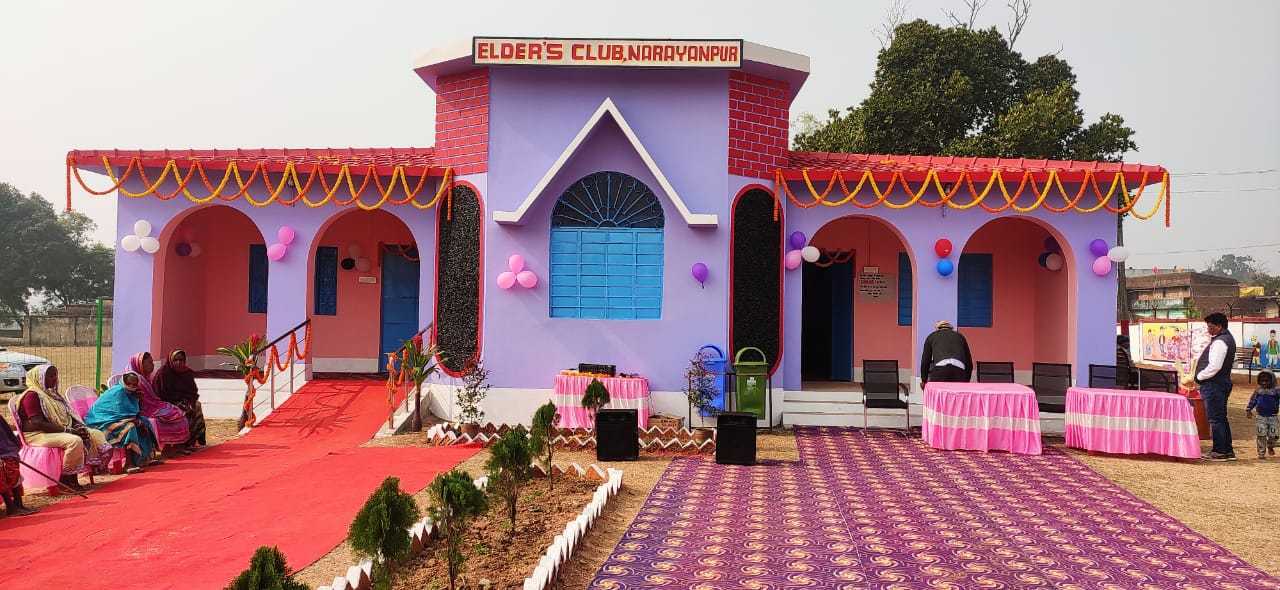
How It Started
When Mumtaz looked at older adults around the district, what stood out was loneliness and sadness. "Most senior citizens were at a stage where they weren't considered important enough. They were physically fit but resigned to a lonely existence, not doing much; some were waiting for life to end because they had nothing to look forward to. They were existing," he told Silver Talkies.
Jamtara is notoriously known as the 'phishing capital of India.' To solve the problem, Mumtaz had set up community libraries across the district earlier. It was his innovative way to redirect the misguided youth from the neighbourhood towards knowledge and education, an ongoing effort.
Setting up the Elders' Clubs was a natural solution to the purposeless state and depression Mumtaz saw around him. His solution was to renovate old, dilapidated buildings in the area and create Elders' Clubs in each of Jamtara's six blocks. Everyone contributed in some capacity to give this story of community building a beautiful beginning. The Police department and civil administration donated chairs, weighing machines, and indoor games. Some local businesses donated televisions and furniture. IOCL donated refrigerators for each club. Residents contributed wherever they could.
A beautiful garden and park surround each Elders' Club. "Sometimes, our grandchildren drop in to play, and we have a good time," Mandal says. He's grateful for this because it leads to a special time that may not have happened at home.
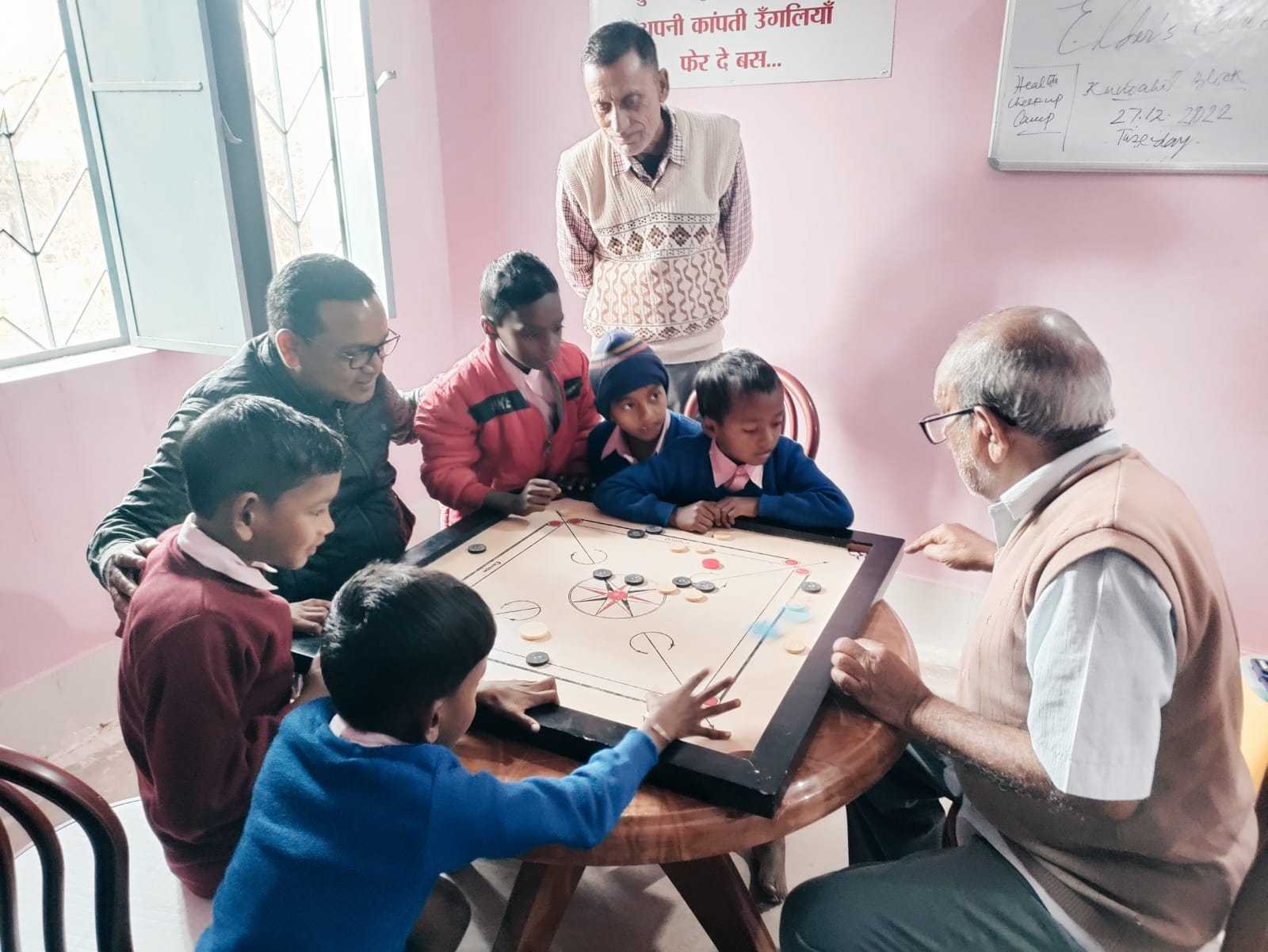
Mandal spends his mornings at the club reading books and magazines, watching some television, and doing Yoga, a practice he had started in his schoolteacher days and has now managed to revive with his peers. There is no time to be bored, he laughs. Instead, his days are pretty packed. "We exercise together. Several indoor games are provided at the club so we play carrom board and Ludo with each other very often. There are holy books across all religions here, and we browse through those when we want. It's good to know more about other religions to understand people matter."
A dedicated space often leads to discussions they wouldn't have had otherwise. Mandal and his friends have had energetic and deep conversations. "We talk about our youth, the old days, our lives. It's a small village, and many of us know each other, but we share stories of happiness and sadness, our griefs and joys. The best part is there is someone to share it with."
How It's Going
At Narayanpur block, 25 km from Jamtara, Narayan Poddar is a widower who had almost given up hope, depressed after his wife's death. He now presides over the local Elders' Club, which started on December 25, 2021. He talks to visiting schoolchildren about his school days, shares his day with fellow members, and is a changed person, says his peer Phanibhushan Misra, 62.
The social network and special focus have worked positively for the members' emotional wellbeing. "I feel good, and that feeling of loneliness is gone. Ekakipan feel nahi ho raha hai, aisa lag raha hai ki saath me sab hai,” says Misra, who was a farmer. "It feels like a community that has come together now." "We come here voluntarily, with a free mind. No one is forcing us to. So this makes a lot of difference and shows in our behaviour with everyone around us, too."
The Elders Clubs are all managed by a member-run maintenance committee where every member takes turns to keep the premises neat and clean. The events that they organise are also based on their likes. The Narayanpur members also help some needy senior citizens who have no place to call home and have pooled resources with the help of the block development officer (BDO) to offer shelter to these homeless seniors. "We help them with food and other necessities to the best extent we can," Misra said.
Beyond the fun and games, there is a look at health and legal matters that can keep the elders safe. A poetry competition was organised recently to encourage creative members. The Elders' Clubs also focus on learning and addressing issues of dispute and abuse that older adults often face but find hard to communicate. Apart from monthly physical checkups, the seniors here are counselled about problems like elder abuse and the Maintenance and Welfare of Parents and Senior Citizens Act. In addition, the members, along with the BDO and other officials, have helped sort out situations for other elders in the neighbourhood. "Sometimes it is easier talking to someone your age about these things," they say.
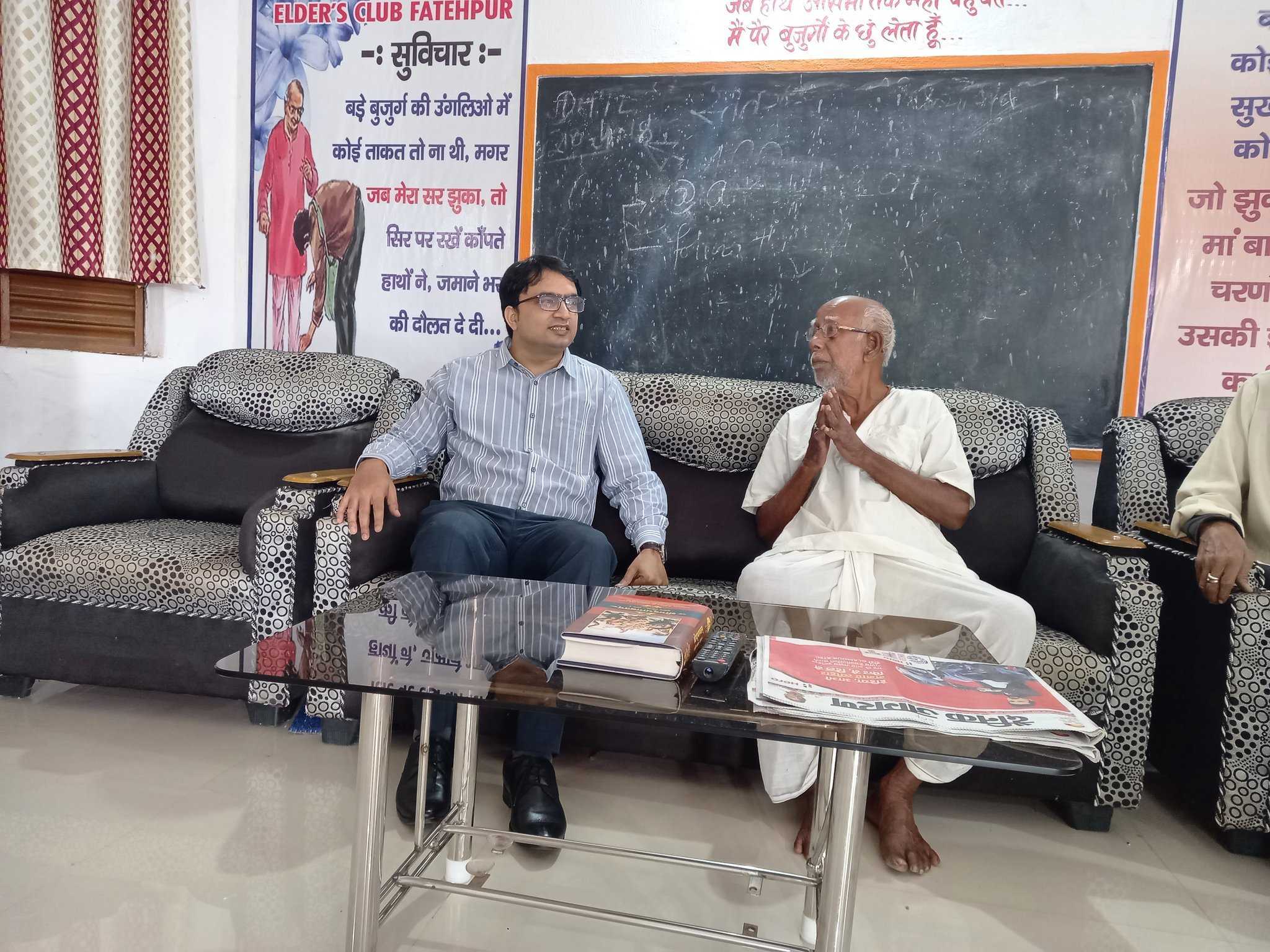
Society has to become sensitized about senior citizens, says Mumtaz. He adds that it is hard to measure the impact of such innovations, but in the past year, he has observed the sense of community, bonds, and emotional wellbeing the Elders' Clubs across the district have managed to create. His Twitter page often has videos of members jovially playing indoor games or interacting with schoolchildren who are regular club visitors. The ideas for the Elders' Club and Community Libraries have won him the Indian Express Excellence in Governance Award and praise from eminent economists like Jean Dreze. He thinks it's a model that can be replicated across the country.
"Whether in a remote village or a well-to-do family in the city, people cannot empathize with an elder's loneliness. The loss of purpose and lack of appreciation for elders requires much thinking to truly understand them."
All images courtesy: Faiz Ahmed Mumtaz & Twitter
How has social engagement and a sense of community made a difference in your life? Share your thoughts in the comment section below.
